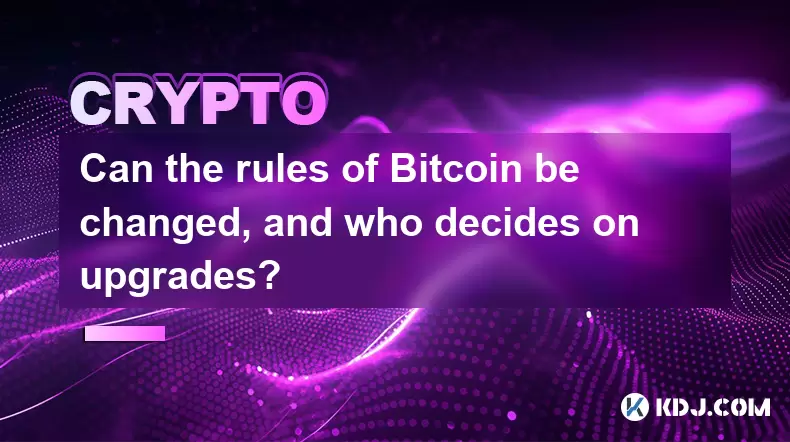-
 Bitcoin
Bitcoin $112400
-1.07% -
 Ethereum
Ethereum $3409
-3.27% -
 XRP
XRP $2.784
-6.60% -
 Tether USDt
Tether USDt $0.9997
-0.03% -
 BNB
BNB $739.3
-2.09% -
 Solana
Solana $158.0
-2.90% -
 USDC
USDC $0.9998
-0.02% -
 TRON
TRON $0.3213
-0.94% -
 Dogecoin
Dogecoin $0.1929
-5.01% -
 Cardano
Cardano $0.6974
-2.82% -
 Hyperliquid
Hyperliquid $36.69
-2.31% -
 Sui
Sui $3.327
-4.80% -
 Stellar
Stellar $0.3672
-5.18% -
 Chainlink
Chainlink $15.65
-3.07% -
 Bitcoin Cash
Bitcoin Cash $525.0
-1.68% -
 Hedera
Hedera $0.2291
-6.00% -
 Avalanche
Avalanche $20.91
-2.96% -
 Ethena USDe
Ethena USDe $1.000
0.00% -
 Toncoin
Toncoin $3.520
-1.12% -
 UNUS SED LEO
UNUS SED LEO $8.968
0.14% -
 Litecoin
Litecoin $105.7
0.26% -
 Shiba Inu
Shiba Inu $0.00001181
-1.79% -
 Polkadot
Polkadot $3.492
-2.08% -
 Uniswap
Uniswap $8.800
-3.10% -
 Dai
Dai $0.9999
-0.01% -
 Monero
Monero $289.9
-3.17% -
 Bitget Token
Bitget Token $4.243
-1.27% -
 Pepe
Pepe $0.00001006
-3.67% -
 Cronos
Cronos $0.1248
-5.68% -
 Aave
Aave $249.7
-2.50%
What kind of currency is Bitcoin? Bitcoin's future trend and prospect forecast
Bitcoin, a groundbreaking decentralized digital currency created in 2009, continues to gain traction in the financial world as its adoption grows and institutional interest strengthens.
Sep 30, 2024 at 07:06 pm

What is Bitcoin?
- Definition: Bitcoin is a decentralized digital currency created in 2009 by an unknown person or group of people using the pseudonym Satoshi Nakamoto. It is the first successful implementation of a cryptocurrency based on blockchain technology.
Key Features:
- Decentralized: Bitcoin is not controlled by any central authority or government. Instead, the network is maintained by a distributed ledger technology called blockchain.
- Pseudonymous: Transactions are recorded on the blockchain, which is public and transparent, but user identities are not directly linked to their transactions.
- Finite Supply: The total supply of Bitcoin is capped at 21 million coins, making it a scarce asset.
- Scarcity: The limited supply and high demand for Bitcoin contribute to its value and potential for appreciation.
Bitcoin's Future Trend and Prospect Forecast
- Growing Adoption: Bitcoin's use and acceptance have been steadily increasing in recent years. More businesses and individuals are adopting it as a payment method, investment, or store of value.
- Institutional Interest: Major institutional investors, including pension funds and hedge funds, are beginning to diversify their portfolios with Bitcoin. This provides stability and legitimacy to the cryptocurrency market.
- Technological Advancements: The development of technologies such as the Lightning Network and Schnorr signatures is expected to improve Bitcoin's scalability, speed, and privacy.
- Regulatory Landscape: Governments around the world are exploring ways to regulate Bitcoin and other cryptocurrencies. Clear regulations could provide clarity and encourage further adoption.
- Price Volatility: Bitcoin's price is known for its volatility. While it has experienced significant growth in value over the past decade, it is important to be aware of potential price fluctuations.
Long-Term Outlook:
- Digital Gold: Some experts believe Bitcoin has the potential to become a digital version of gold, serving as a store of value and a hedge against inflation.
- Global Currency: With its potential for cross-border transactions and reduced transaction costs, Bitcoin could evolve into a more widely accepted global currency.
However, it is important to note that the future of Bitcoin depends on a number of factors, including technological advancements, regulatory decisions, economic conditions, and societal acceptance. Its value remains speculative, and investing in Bitcoin carries financial risk.
Disclaimer:info@kdj.com
The information provided is not trading advice. kdj.com does not assume any responsibility for any investments made based on the information provided in this article. Cryptocurrencies are highly volatile and it is highly recommended that you invest with caution after thorough research!
If you believe that the content used on this website infringes your copyright, please contact us immediately (info@kdj.com) and we will delete it promptly.
- Shiba Inu's Successor? Ruvi AI's ROI Forecast Turns Heads
- 2025-08-03 06:30:12
- Ruvi AI vs. Tron: Can AI Outpace the Crypto Giant on CoinMarketCap?
- 2025-08-03 07:10:12
- XRP ETF Hopes Fuel Altcoin Frenzy: Solana, Pi Coin, and the Next Big Thing
- 2025-08-03 07:10:12
- Price Prediction Palooza: Breakouts, Retests, and a Sprinkle of Crypto Magic
- 2025-08-03 06:35:12
- Ruvi AI: The AI Token on Cardano Set to Dominate After CMC Listing
- 2025-08-03 04:50:12
- Altcoins in the Spotlight: Cardano, Shiba Inu, and the Quest for Crypto Supremacy
- 2025-08-03 05:30:12
Related knowledge

What is the difference between holding Bitcoin on an exchange versus in a personal wallet?
Aug 02,2025 at 03:15pm
Understanding Custodial vs Non-Custodial ControlWhen holding Bitcoin on an exchange, users are essentially entrusting their assets to a third party. E...

Can governments shut down or ban Bitcoin?
Aug 02,2025 at 09:44am
Understanding Bitcoin’s Decentralized StructureBitcoin operates on a decentralized peer-to-peer network, meaning it is not controlled by any single en...

What are Bitcoin transaction fees, and why do they fluctuate?
Aug 03,2025 at 01:51am
Understanding Bitcoin Transaction FeesBitcoin transaction fees are small amounts of Bitcoin paid by users to miners for processing and confirming tran...

Can the rules of Bitcoin be changed, and who decides on upgrades?
Aug 02,2025 at 06:36am
Understanding Bitcoin's Governance ModelBitcoin operates without a central authority, which means no single entity has the power to unilaterally chang...

Who controls the Bitcoin network if there is no central company or bank?
Aug 02,2025 at 06:01pm
Understanding Decentralized Control in BitcoinThe Bitcoin network operates without a central authority, which raises the question of who controls it. ...

Is Bitcoin a good investment, or is it too volatile and risky?
Aug 03,2025 at 05:28am
Understanding Bitcoin’s Role in Modern Investment PortfoliosBitcoin has increasingly become a topic of interest for investors seeking alternative asse...

What is the difference between holding Bitcoin on an exchange versus in a personal wallet?
Aug 02,2025 at 03:15pm
Understanding Custodial vs Non-Custodial ControlWhen holding Bitcoin on an exchange, users are essentially entrusting their assets to a third party. E...

Can governments shut down or ban Bitcoin?
Aug 02,2025 at 09:44am
Understanding Bitcoin’s Decentralized StructureBitcoin operates on a decentralized peer-to-peer network, meaning it is not controlled by any single en...

What are Bitcoin transaction fees, and why do they fluctuate?
Aug 03,2025 at 01:51am
Understanding Bitcoin Transaction FeesBitcoin transaction fees are small amounts of Bitcoin paid by users to miners for processing and confirming tran...

Can the rules of Bitcoin be changed, and who decides on upgrades?
Aug 02,2025 at 06:36am
Understanding Bitcoin's Governance ModelBitcoin operates without a central authority, which means no single entity has the power to unilaterally chang...

Who controls the Bitcoin network if there is no central company or bank?
Aug 02,2025 at 06:01pm
Understanding Decentralized Control in BitcoinThe Bitcoin network operates without a central authority, which raises the question of who controls it. ...

Is Bitcoin a good investment, or is it too volatile and risky?
Aug 03,2025 at 05:28am
Understanding Bitcoin’s Role in Modern Investment PortfoliosBitcoin has increasingly become a topic of interest for investors seeking alternative asse...
See all articles

























































































